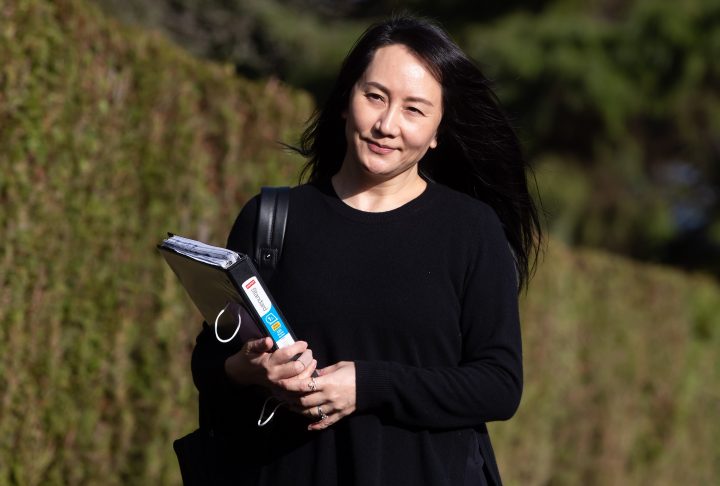VANCOUVER — A lawyer for Huawei executive Meng Wanzhou says a retired Mountie’s refusal to testify in the extradition case adds weight to an argument that the officer shared information about her devices with U.S. investigators.


Scott Fenton told a B.C. Supreme Court judge that former staff sergeant Ben Chang is the “most important witness” on the issue of whether electronic serial numbers were improperly shared with the Federal Bureau of Investigation.
The court has heard Chang was asked by the FBI for information about Meng’s devices in order to enter a legal request to obtain them, although there is no direct evidence the information was sent.
Fenton says Chang retired six months after Meng’s arrest, moved to Macau and refused to testify, beyond filing an affidavit saying he did not share the information.

Get breaking National news
The arguments are part of a hearing that will determine if Meng was subjected to an abuse of process by Canadian officials, and if proven the judge will decide whether extradition proceedings should be stayed against her.

Meng is wanted in the United States on fraud charges related to violations of U.S. sanctions against Iran, which both she and Huawei deny.
Fenton called the refusal of the former RCMP officer to submit to cross-examination “one of the more troubling elements in the case” and “unprecedented.”
He urged the judge to give no weight to Chang’s written testimony and instead to take an “adverse inference,” or conclude that the cross-examination would have undermined the claims in his affidavit.



_848x480_1397405763961.jpg?h=article-hero-560-keepratio&w=article-hero-small-keepratio&crop=1&quality=70&strip=all)

Comments
Want to discuss? Please read our Commenting Policy first.